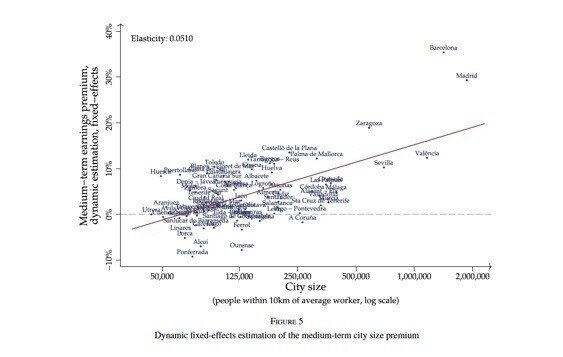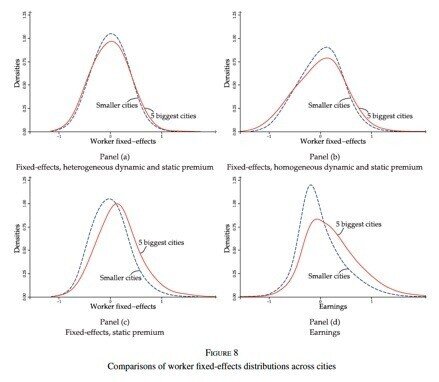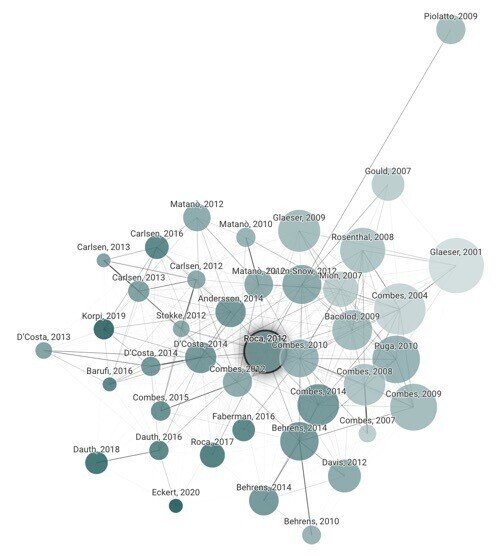
【EL Vol.3】大都市での"学習効果"がもたらす所得増: Learning by working in big cities
大都市ほど労働者の所得が高いことは直感的に整合的で、以前から多くの先行研究で実証されてきた。De la Roca & Pugaは「(Staticな)大都市プレミアム」「学習効果」「(もともと生産性が高い労働者の)ソーティング」に注目。スペインの長期で網羅的な行政データを用いることで大都市に移住することによる学習・経験の効果を明らかにした。
Abstract
Individual earnings are higher in bigger cities.We consider three reasons: spatial sorting of initially more productive workers, static advantages from workers' current location, and learning by working in bigger cities. Using rich administrative data for Spain, we find that workers in bigger cities do not have higher initial unobserved ability as reflected in fixed effects. Instead, they obtain an immediate static premium and accumulate more valuable experience. The additional value of experience in bigger cities persists after leaving and is stronger for those with higher initial ability. This explains both the higher mean and greater dispersion of earnings in bigger cities.
要約
個人の所得は大都市の方が高い。その理由としては、初期の生産性の高い労働者の空間的な選別、労働者の現在地からの静的な優位性、大都市で働くことによる学習、の3つが考えられる。スペインの豊富な行政データを用いて、大都市の労働者は固定効果に反映されるような初期の観察されない能力が高いわけではないことを発見した。むしろ、すぐに静的なプレミアムを得て、より価値のある経験を蓄積している。大都市での経験の付加価値は、退職後も持続し、初期能力が高い人ほど強い。これにより、大都市での収入の平均値の高さと分散の大きさの両方が説明できる。


MLA
Roca, Jorge De La, and Diego Puga. "Learning by working in big cities." The Review of Economic Studies 84.1 (2017): 106-142.
Connected Papers

この記事が気に入ったらサポートをしてみませんか?
